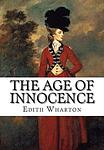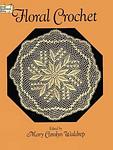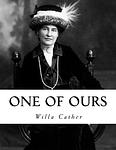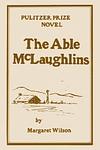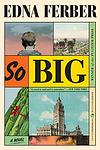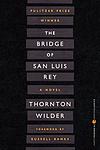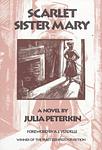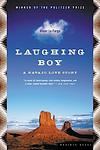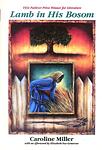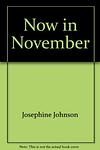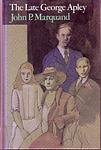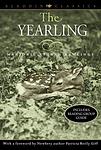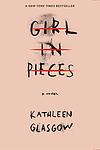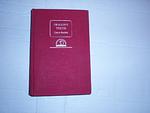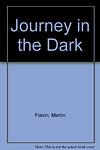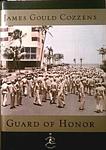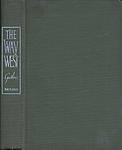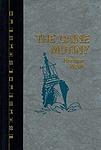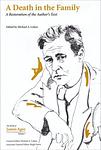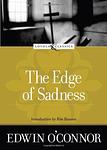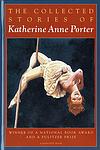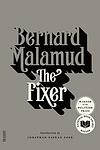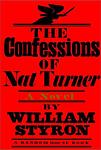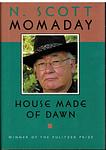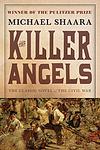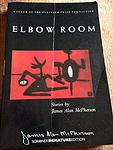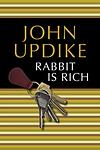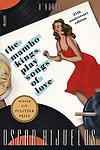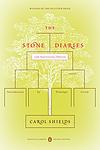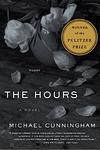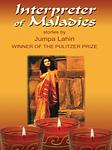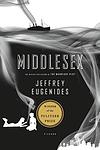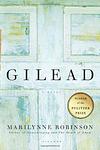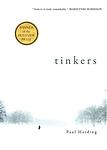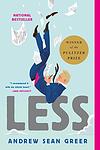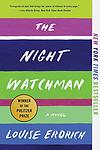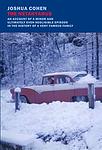Pulitzer Prize for Fiction
This is one of the 284 lists we use to generate our main The Greatest Books list.
-
His Family by Ernest Poole
The novel follows the story of a widowed father, Roger Gale, living in New York City, as he tries to understand and connect with his three, very different, grown daughters during the early 20th century. Facing the rapidly changing society, including the rise of feminism and the shifting role of women, Gale struggles to adapt while trying to maintain the traditional values he holds dear. The story explores themes of family, generational differences, and the evolving social landscape of the time.
-
The Magnificent Ambersons by Booth Tarkington
"The Magnificent Ambersons" is a Pulitzer Prize-winning novel set in the early 20th century that explores the dramatic changes brought about by the industrial revolution in America. It follows the decline of the once-prosperous Amberson family as their fortune and influence wane with the rise of new money and modern technology. The story is centered around the prideful and spoiled George Amberson Minafer, whose arrogance and inability to adapt to the changing world lead to his downfall.
-
The Age of Innocence by Edith Wharton
Set in the 1870s, the novel revolves around Newland Archer, a young lawyer from New York's high society, who is engaged to the beautiful and conventional May Welland. His life takes a turn when he meets May's cousin, the Countess Ellen Olenska, who has returned from Europe after leaving her scandalous husband. Torn between his duty and passion, Archer struggles with the constraints of the society he is a part of. The book offers a vivid portrayal of the struggle between individual desires and societal expectations in the upper-class New York society of the late 19th century.
-
Alice Adams by Booth Tarkington
Set in the early 20th century, the novel is about a young woman, Alice Adams, who aspires to climb the social ladder in her small town. She is hindered by her family's low social status and poor finances. Despite her attempts to fit in with the upper-class society, her efforts often lead to awkward and embarrassing situations. The story is a poignant exploration of ambition, societal pressure, and the struggle for acceptance.
-
One of Ours by Willa Cather
The novel follows the life of Claude Wheeler, a young Nebraska native who is dissatisfied with his prosperous farming life. When the United States enters World War I, he sees it as an opportunity to find purpose and meaning, and enlists in the army. The book explores his experiences and struggles in the war, his longing for home, and his ultimate sacrifice, providing a poignant commentary on the impact of war on the individual and society.
-
The Able McLaughlins by Margaret Wilson
"The Able McLaughlins" is a historical novel set in the 19th century, revolving around a Scottish immigrant family in Iowa. The story follows Wully McLaughlin, the eldest son, who returns home from the Civil War only to discover that his sweetheart, Chirstie, has been violated and is pregnant. Wully marries her to protect her honor, and sets out to find the man responsible, leading to a dramatic climax. The novel explores themes of family, honor, justice, and the immigrant experience in America.
-
So Big by Edna Ferber
"So Big" is a novel that follows the life of Selina Peake De Jong, a woman who moves from Chicago to a rural Dutch community in Illinois after the death of her father. She becomes a school teacher and marries a farmer, living a life of hardship and poverty. Despite the challenges, she instills a love of beauty and art in her son Dirk, who grows up to become a successful architect. The book explores themes of resilience, the American Dream, and the often overlooked value of hard work and artistic integrity.
-
Arrowsmith by Sinclair Lewis
The novel follows the life of a bright and dedicated young man, Martin Arrowsmith, who dreams of making significant contributions to medical science. He faces a constant struggle between his ambition and the demands of his professional and personal life. His journey takes him from a small Midwestern town to the prestigious universities of the East Coast, and eventually to a deadly outbreak in the Caribbean. Throughout his journey, he grapples with the corruption, greed, and mediocrity that he finds pervading the medical field, all while trying to remain true to his scientific ideals.
-
Early Autumn by Louis Bromfield
"Early Autumn" is a Pulitzer Prize-winning novel that explores the life of a New England matriarch, her disintegrating, aristocratic family and a young girl who moves in with them. The story delves into the family's struggle to maintain their fading glory and the young girl's transformation under the guidance of the matriarch. The novel is a critique of the American Dream and the social changes in the United States during the early 20th century.
-
The Bridge of San Luis Rey by Thornton Wilder
"The Bridge of San Luis Rey" is a novel that explores the nature of love and the meaning of life, set in 18th century Peru. The narrative revolves around a tragic incident where five people die when a rope bridge collapses. A Franciscan monk, who witnesses the accident, embarks on a quest to find out why these particular people had to die, hoping to prove that it was divine intervention. The book delves into the lives of the victims, revealing their personal stories, their hopes, dreams, and disappointments, as the monk attempts to decipher the cosmic significance of this tragedy.
-
Scarlet Sister Mary by Julia Peterkin
This novel is a powerful portrayal of the life of an African American woman named Mary, who grows up in a religious community in the South during the early 20th century. Mary, who is initially a devout follower of her faith, is led astray by her desires and ends up bearing many children out of wedlock. Her community ostracizes her for her transgressions and she must find a way to survive and care for her children on her own. The story explores themes of faith, sin, redemption, and resilience in the face of adversity.
-
Laughing Boy by Oliver La Farge
"Laughing Boy" is a novel set in the early 20th century that explores the life of a young Navajo man who falls in love with a beautiful, educated woman from his tribe. The narrative delves into their relationship, the clash of traditional and modern cultures, and the struggle for identity amidst societal changes. The story portrays the protagonist's journey towards self-discovery and his struggle to reconcile his love for the woman with his commitment to his tribe's customs and traditions.
-
Years of Grace by Margaret Ayer Barnes
"Years of Grace" is a novel that follows the life of a woman named Jane Ward Carver from her adolescence in the late 19th century to her adulthood in the early 20th century. The book explores her struggles and triumphs in navigating societal expectations, love, marriage, and motherhood in a rapidly changing world. The story is set against the backdrop of significant historical events, including World War I and the Roaring Twenties, providing a rich and detailed portrait of a woman's life during this transformative era.
-
The Good Earth by Pearl S. Buck
This novel tells the story of a poor farmer in rural China, who struggles to survive and prosper. Over time, he manages to build a life for himself and his family, eventually becoming a wealthy landowner. However, his newfound wealth and status lead to a moral decline, as he becomes disconnected from the land that gave him everything. The narrative explores themes of wealth, poverty, and the human connection to the earth.
-
The Store by Thomas Sigismund Stribling
"The Store" is a Pulitzer Prize-winning novel that dives deep into the social and economic changes in the South during the early 20th century. The narrative follows the life of a former Confederate soldier who, after the Civil War, manages to rise from poverty and become a successful businessman. The book explores themes of racism, class struggle, and the complexities of the Southern society during the Reconstruction period, as the protagonist navigates his way through the challenges of his time.
-
Lamb in His Bosom by Caroline Miller
"Lamb in His Bosom" is a historical novel that follows the life of Cean and Lonzo, a young couple in the pioneer South during the late 18th and early 19th centuries. The narrative explores their journey through love, hardship, and the daily struggles of pioneer life. The book provides an intimate look into the lives of the rural poor, their faith, their relationship with the land, their customs, and the rhythm of their language. The story is a testament to human resilience and the power of love and family in the face of hardship.
-
Now in November by Josephine Winslow Johnson
"Now in November" is a compelling narrative about a family's struggle to survive during the Great Depression. The story, told from the perspective of the middle daughter, details the family's move from the city to the country in hopes of a better life, only to face hardship, poverty, and tragedy. As they grapple with the harsh realities of their new life, the family's bonds are tested, leading to a heartbreaking conclusion. The novel is a poignant exploration of human resilience in the face of adversity.
-
Honey in the Horn by Harold L. Davis
"Honey in the Horn" is a novel set in Oregon at the turn of the 20th century, following the life of Clay Calvert, a young orphan. The story explores his adventures as he travels across the state, encountering various characters and cultures, including homesteaders, laborers, and Native Americans. The book delves into the rich tapestry of the Pacific Northwest, its history, and its people, painting a vivid picture of the region's diversity and the challenges faced during that era.
-
Gone With the Wind by Margaret Mitchell
Set against the backdrop of the American Civil War and Reconstruction era, this novel follows the life of a young Southern belle, who is known for her beauty and charm. Her life takes a turn when she is forced to make drastic changes to survive the war and its aftermath. The story revolves around her struggle to maintain her family's plantation and her complicated love life, especially her unrequited love for a married man, and her tumultuous relationship with a roguish blockade runner.
-
The Late George Apley by John P. Marquand
"The Late George Apley" is a satirical novel that presents a critical view of the upper class society in Boston during the early 20th century. The narrative unfolds through a series of letters, diary entries, and other documents, chronicling the life of George Apley, a wealthy Bostonian. The book explores Apley's struggles to uphold the traditions and social norms of his class, despite the rapidly changing world around him. The story provides a nuanced portrayal of the protagonist's life, highlighting the constraints and pressures of conforming to societal expectations.
-
The Yearling by Marjorie Kinnan Rawlings
"The Yearling" is a coming-of-age story set in the late 19th century, in the scrubland of Florida. It follows a young boy who adopts an orphaned baby deer and nurtures it into adulthood. As the deer grows, it begins to cause problems for the boy's family, who are struggling to survive as subsistence farmers. The boy is eventually forced to choose between his love for the deer and his responsibility to his family, leading to a heartbreaking decision that marks his transition into adulthood.
-
The Grapes of Wrath by John Steinbeck
The book follows the Joad family, Oklahoma farmers displaced from their land during the Great Depression. The family, alongside thousands of other "Okies," travel to California in search of work and a better life. Throughout their journey, they face numerous hardships and injustices, yet maintain their humanity through unity and shared sacrifice. The narrative explores themes of man's inhumanity to man, the dignity of wrath, and the power of family and friendship, offering a stark and moving portrayal of the harsh realities of American migrant laborers during the 1930s.
-
In This Our Life by Ellen Glasgow
This novel tells the story of the Timberlake family, focusing on two sisters, Stanley and Roy. Stanley is a selfish, manipulative woman who abandons her husband for her sister Roy's husband, causing a series of tragic events. Meanwhile, Roy, the more responsible and virtuous sister, must navigate the fallout of Stanley's actions. The book explores themes of family, morality, and the destructive power of selfishness, all set against the backdrop of the American South in the early 20th century.
-
Dragon's Teeth by Upton Sinclair
"Dragon's Teeth" is a historical novel set during the rise of Nazi Germany, following the life of a wealthy American named Lanny Budd. Lanny, who is politically connected and fluent in several languages, becomes involved in the political intrigue of the era, including the machinations of Hitler and his inner circle. The novel explores the political, economic, and social conditions that allowed the Nazi party to rise to power, and the consequences for those who stood in its way.
-
Journey in the Dark by Martin Flavin
"Journey in the Dark" is a novel that follows the life of Sam Braden, a man born into poverty in Iowa who rises to wealth and power in the business world of New York. Despite his success, Sam struggles with his past, personal demons, and the corruption and greed he encounters in his journey. The story provides a critical examination of the American Dream, questioning whether success and wealth truly bring happiness and fulfillment.
-
A Bell for Adano by John Hersey
Set during World War II, this novel follows an Italian-American U.S. Army officer who is assigned as the temporary administrator of a small town in Sicily. His main goal is to help restore order and normalcy for the townspeople after the chaos of war. His efforts are epitomized by his quest to replace the town's bell, which had been melted down for bullets by the Fascists. Despite the bureaucratic hurdles and the harsh realities of war, he remains committed to this symbolic act of restoration.
-
All the King's Men by Robert Penn Warren
"All the King's Men" is a political drama that revolves around the rise and fall of a Southern governor, loosely based on Louisiana's Huey Long. The story is narrated by a journalist who becomes the governor's right-hand man, offering an inside perspective on the political machinations, corruption, and personal tragedies that accompany the governor's climb to power. The novel explores themes of power, corruption, and the moral consequences of political ambition.
-
Tales of the South Pacific by James A. Michener
"Tales of the South Pacific" is a collection of interconnected stories set during World War II in the Pacific Islands. The book provides a vivid and diverse portrayal of life in the South Pacific during this period, exploring the experiences of the soldiers, nurses, and native inhabitants. The stories delve into themes of love, war, cultural clash, and the human spirit, offering a nuanced and poignant exploration of the complexities of war and its impact on individuals and societies.
-
Guard of Honor by James Gould Cozzens
"Guard of Honor" is a detailed and realistic portrayal of life in a World War II army air forces base. It revolves around the experiences of a disillusioned newspaperman, who is called back into service during World War II. The narrative delves into the complexities of military life, the intricate bureaucracy, racial tensions, and the moral dilemmas faced by those in positions of power during the war. The novel explores the themes of duty, honor, and the harsh realities of war.
-
The Way West by A. B. Guthrie, Jr
"The Way West" is a Pulitzer Prize-winning novel that chronicles the journey of a group of pioneers traveling westward on the Oregon Trail in the 1840s. The story focuses on the diverse group of travelers, each with their own motivations and backgrounds, as they face the hardships and challenges of the trail. The novel explores themes of survival, the American dream, and the harsh realities of westward expansion.
-
The Town by Conrad Richter
"The Town" is the final installment in a trilogy depicting the pioneering American spirit. It follows Sayward Wheeler, the daughter of a pioneer, as she witnesses the transformation of the Ohio wilderness into a bustling town. She experiences the joy and pain of motherhood, the comfort and loneliness of marriage, and the satisfaction and despair of building a home, all while observing the encroachment of civilization on the wilderness she loves. The novel explores themes of progress, change, and the cost of civilization.
-
The Caine Mutiny by Herman Wouk
The book is a classic naval story set during World War II, where a young officer is assigned to a minesweeper ship, USS Caine, under the command of a paranoid and possibly mentally unstable captain. This leads to a mutiny, a court-martial, and a dramatic climax in a storm-tossed court-room. The novel explores themes of authority, personal courage, and the complexities of leadership and command.
-
The Old Man and the Sea by Ernest Hemingway
An aging Cuban fisherman struggles with a giant marlin far out in the Gulf Stream, isolated from the world and from human help. For days, he fights the marlin alone, admiring its strength, dignity, and faithfulness to its identity—its destiny is as true as his as a fisherman. He finally kills the marlin, but sharks attack and devour it before he can return to the shore. The fisherman returns home empty-handed but remains undefeated, having proven his abilities to himself.
-
A Fable by William Faulkner
This novel is a World War I allegory where a Christ-like figure emerges within a French regiment, sparking a mutiny. The figure, a corporal, persuades his squadron to not attack in the bloody conflict, leading to their court-martial and execution. The narrative explores themes of war, morality, and the human spirit, with the corporal's actions causing a ripple effect, impacting the lives of soldiers, officers, and even a Jesuit priest.
-
Andersonville by MacKinlay Kantor
"Andersonville" is a historical novel set during the American Civil War, focusing on the Confederate prisoner-of-war camp, Andersonville prison. The narrative vividly portrays the horrific conditions and experiences of the Union soldiers held captive there. It delves into the lives of the prisoners, their captors, and the surrounding civilian population, providing a comprehensive and brutal depiction of one of the most notorious chapters in American history.
-
A Death in the Family by James Agee
The novel centers around the tragic death of a young father in a car accident, exploring its profound impact on his family. The narrative delves into the grieving process of his wife, children, and extended family in Knoxville, Tennessee in 1915. The story explores themes of love, loss, and the struggle to find meaning in the face of tragic circumstances. It is a poignant examination of the human condition and the inevitable experience of loss.
-
The Travels of Jaimie McPheeters by Robert Lewis Taylor
"The Travels of Jaimie McPheeters" is a historical fiction novel that follows the journey of a 14-year-old boy and his father as they join a wagon train heading for California during the Gold Rush in 1849. The narrative is filled with humor and adventure, as the pair encounter a variety of colorful characters and dangerous situations along the way. The boy's father is a doctor with a penchant for gambling, which often lands them in trouble, but also provides opportunities for the young protagonist to grow and learn about life, human nature, and himself.
-
Advise and Consent by Allen Drury
This political novel delves into the world of U.S. Senate politics. The plot revolves around the contentious confirmation process of a controversial Secretary of State nominee, who is suspected of having communist sympathies. As the Senate battles over the nomination, the novel reveals the complex web of political maneuvering, personal secrets, and power struggles among the country's leaders. The story provides an insightful exploration of American politics, ethics, and the consequences of past actions.
-
To Kill a Mockingbird by Harper Lee
Set in the racially charged South during the Depression, the novel follows a young girl and her older brother as they navigate their small town's societal norms and prejudices. Their father, a lawyer, is appointed to defend a black man falsely accused of raping a white woman, forcing the children to confront the harsh realities of racism and injustice. The story explores themes of morality, innocence, and the loss of innocence through the eyes of the young protagonists.
-
The Edge of Sadness by Edwin O'Connor
"The Edge of Sadness" is a story about a middle-aged Catholic priest who, after battling alcoholism and depression, returns to his hometown to serve in a local parish. The novel explores themes of faith, friendship, and redemption as the protagonist reconnects with his old friends, confronts his past, and tries to rebuild his life. The story is also a reflection on the changing face of the Catholic Church and the Irish-American community in the mid-20th century.
-
The Reivers by William Faulkner
This novel is a humorous coming-of-age story set in the American South in the early 20th century. It follows a young boy who, along with two companions, steals his grandfather's car and embarks on an adventure to Memphis. Along the way, they encounter various characters and situations that challenge their morals and force them to grow up quickly. The journey serves as a metaphor for the loss of innocence and the harsh realities of adulthood.
-
The Keepers of the House by Shirley Ann Grau
The novel tells the story of a wealthy, prominent Southern family, the Howlands, who have lived on the same plot of land in Alabama for over a century. The narrative is marked by the scandalous interracial relationship between the patriarch, William Howland, and his African-American housekeeper, Margaret Carmichael. Their secret relationship and the children it produces are kept hidden until William's death, when his granddaughter, Abigail, uncovers the truth, leading to a dramatic confrontation with the racially prejudiced townspeople. The book explores themes of race, family legacy, and the destructive power of bigotry.
-
The Collected Stories of Katherine Anne Porter by Katherine Anne Porter
This collection of stories showcases the author's talent for creating vivid, richly detailed characters and settings. The stories are diverse in theme and setting, ranging from the rural American South to post-World War I Europe. Through her complex characters and nuanced storytelling, the author explores themes of love, loss, and the human struggle for personal freedom and authenticity. The collection includes both her short stories and her longer, more complex novellas, providing a comprehensive overview of her literary achievements.
-
The Fixer by Bernard Malamud
"The Fixer" is a historical novel set in Tsarist Russia that follows the story of a Jewish handyman, or "fixer", who is unjustly imprisoned after being accused of ritual murder. The narrative explores his struggle for dignity, survival, and ultimately freedom against the backdrop of a deeply anti-Semitic society. The protagonist's ordeal becomes a symbol for the broader persecution of Jews during this era, offering a profound commentary on human rights, faith, and resilience.
-
The Confessions of Nat Turner by William Styron
"The Confessions of Nat Turner" is a fictionalized account of a historical event, the 1831 Virginia slave uprising led by Nat Turner. The book is presented as a first-person narrative from Turner's perspective, exploring his life as a slave, his religious visions, and the violent rebellion he led against white slaveholders. The novel delves into the complexities of slavery, morality, and rebellion, while also examining the psychological trauma inflicted by the institution of slavery.
-
House Made of Dawn by N. Scott Momaday
The novel delves into the life of a young Native American man named Abel who returns home to his New Mexico Pueblo reservation after serving in World War II. Struggling with the trauma of war and the cultural dislocation caused by years away from his traditional tribal life, Abel tries to find his identity and place in a world that is torn between ancient tribal traditions and the modern white society. His journey of self-discovery and redemption is poignantly narrated, highlighting the struggles faced by Native Americans in the contemporary world.
-
The Collected Stories of Jean Stafford by Jean Stafford
"The Collected Stories of Jean Stafford" is a compilation of 57 short stories that delve into the complexities of human character and relationships. The stories, set in various locations including New England, the Southwest, and Europe, explore themes such as love, loss, loneliness, and the struggle for identity. The author's sharp wit, keen observation, and profound understanding of human nature are reflected in her vivid character portrayals and engaging narratives.
-
Angle of Repose by Wallace Stegner
This novel follows the story of a retired historian, wheelchair-bound due to a degenerative disease, as he explores the lives of his pioneering grandparents in the late 19th and early 20th century American West. Through letters, he pieces together their struggles, triumphs, and the impact of their relationship on their surroundings. The historian parallels his own life and failed marriage with that of his grandparents, leading to a deep exploration of the concepts of stability, perseverance, and the "angle of repose."
-
The Optimist's Daughter by Eudora Welty
The story revolves around a woman who returns to her southern hometown to care for her ailing father. After his death, she is confronted by the harsh realities of her past and the complexities of her present. She navigates through the difficult dynamics of her family, her father's young second wife, and the superficial social circle of her community, all while grappling with her own grief. The novel explores themes of memory, loss, and the often complicated relationships within families.
-
The Killer Angels by Michael Shaara
"The Killer Angels" is a historical novel that provides a detailed account of the Battle of Gettysburg during the American Civil War. Told from the perspectives of several key figures, including Generals Robert E. Lee and James Longstreet on the Confederate side, and Colonel Joshua Chamberlain on the Union side, the book explores the motivations, thoughts, and struggles of these men as they navigate the brutal realities of war. The narrative vividly brings to life the events, decisions, and human drama that culminated in the pivotal battle, shedding light on the personal and political complexities of this critical period in American history.
-
Humboldt's Gift by Saul Bellow
This novel explores the friendship between a successful writer and his mentor, a once-celebrated poet now living in poverty and mental instability. As the protagonist navigates his own existential crisis amidst a life of material success, he reflects on the ideals of his mentor and the nature of art and personal ambition. The narrative grapples with themes of materialism, the purpose of art, and the spiritual emptiness of modern life.
-
Elbow Room by James Alan McPherson
"Elbow Room" is a collection of short stories that explore the lives of African Americans in the United States during the 1960s and 1970s. The narrative delves into the complexities of race, class, and culture, focusing on the experiences of black individuals navigating through a predominantly white society. The stories are rich in humor and humanity, offering a profound examination of the struggle for identity and the search for a sense of belonging.
-
The Stories of John Cheever by John Cheever
This collection of short stories provides an intimate look into the lives of individuals living in the American suburbs during the mid-20th century. The narratives often center around themes of love, loss, and the pursuit of the American dream, painting a vivid picture of the human condition. The characters are typically middle-class individuals dealing with personal crises, existential dread, and the often harsh realities of everyday life. The stories are renowned for their ability to capture the essence of post-war America, with all of its beauty, despair, and complexity.
-
The Executioner's Song by Norman Mailer
"The Executioner's Song" is a true crime novel that tells the story of Gary Gilmore, a man who, after being released from prison, embarks on a murder spree in Utah that leads to his capture and execution. The book delves into Gilmore's troubled life and psyche, his relationships, and the legal and moral debates surrounding his death sentence. It provides an in-depth look at the American criminal justice system and capital punishment.
-
A Confederacy of Dunces by John Kennedy Toole
The novel is a comedic satire set in New Orleans in the early 1960s, centered around Ignatius J. Reilly, a lazy, eccentric, highly educated, and socially inept man who still lives with his mother. Ignatius spends his time writing a lengthy philosophical work while working various jobs and avoiding the responsibilities of adulthood. The story follows his misadventures and interactions with a colorful cast of characters in the city, including his long-suffering mother, a flamboyant nightclub owner, a beleaguered factory worker, and a frustrated hot dog vendor.
-
Rabbit Is Rich by John Updike
The book follows the life of a former high school basketball star, who is now in his mid-forties and has inherited a Toyota dealership from his father-in-law. He is living a comfortable life with his wife and son in Brewer, Pennsylvania during the late 1970s. The story unfolds as he navigates through his midlife crisis, dealing with his rebellious son, his longing for his old mistress, and his own insecurities and dissatisfaction. The narrative provides a deep dive into the protagonist's thoughts and feelings, offering a detailed examination of middle-class American life during this era.
-
The Color Purple by Alice Walker
Set in the early 20th century, the novel is an epistolary tale of a young African-American woman named Celie, living in the South. She faces constant abuse and hardship, first from her father and then from her husband. The story unfolds through her letters written to God and her sister Nettie, revealing her emotional journey from oppression to self-discovery and independence, aided by her relationships with strong women around her. The narrative explores themes of racism, sexism, domestic violence, and the power of sisterhood and love.
-
Ironweed by William Kennedy
Set during the Great Depression, the novel follows Francis Phelan, a former professional baseball player, who has become a drifter following a series of unfortunate events. Haunted by his past, including the accidental death of his infant son, Phelan returns to his hometown of Albany, New York, where he confronts his past and tries to make amends. The book explores themes of guilt, suffering, survival, and redemption.
-
Foreign Affairs by Alison Lurie
This novel presents the intertwined stories of two American academics in London. Virginia Miner, a fifty-something, unmarried tenured professor, is in London for a six-month sabbatical to research children's folk rhymes. Despite her work, she increasingly finds herself drawn into a spiraling relationship with a young man from Oklahoma. In contrast, Fred Turner, a young assistant professor in the English department, leaves his wife and children behind in the States to conduct research on John Gay. He finds himself taken up by the very English and very upscale family of a fellow researcher. Their parallel experiences reflect their shared foreignness and alienation in the UK.
-
Lonesome Dove by Larry McMurtry
The book tells the story of two retired Texas Rangers who embark on a perilous cattle drive from Texas to Montana in the 1870s. The narrative focuses on the duo's adventures and the characters they meet along the way, including a variety of outlaws, Indians, and settlers. This epic tale of the Old West explores themes of friendship, unrequited love, and the harsh realities of frontier life.
-
A Summons to Memphis by Peter Taylor
This novel tells the story of a New York editor who is called back to his hometown of Memphis, Tennessee, by his two manipulative older sisters to help them prevent their elderly father from remarrying. As he becomes embroiled in their family drama, he reflects on his upbringing in the South, his father's tyrannical rule over the family, and the impact it had on his life. The narrative explores themes of family, memory, and the passage of time.
-
Beloved by Toni Morrison
This novel tells the story of a former African-American slave woman who, after escaping to Ohio, is haunted by the ghost of her deceased daughter. The protagonist is forced to confront her repressed memories and the horrific realities of her past, including the desperate act she committed to protect her children from a life of slavery. The narrative is a poignant exploration of the physical, emotional, and psychological scars inflicted by the institution of slavery, and the struggle for identity and self-acceptance in its aftermath.
-
Breathing Lessons by Anne Tyler
This novel revolves around a middle-aged couple, Ira and Maggie Moran, and their journey to a funeral. The story delves into their relationship dynamics, their regrets, and their hopes for the future. The narrative explores the complexities of marriage, the disappointments of parenthood, and the general trials and tribulations of life. The couple's interactions with other characters they meet along the way further illuminate their struggles and their enduring love for each other.
-
The Mambo Kings Play Songs of Love by Oscar Hijuelos
"The Mambo Kings Play Songs of Love" is a captivating tale of two Cuban brothers who emigrate to New York City in the 1950s to pursue their dreams of becoming famous mambo musicians. The story is told through the memories of the older brother, now a middle-aged man living in the U.S., as he reflects on their past glories, struggles, romantic entanglements, and the cultural and personal identity conflicts they faced in their journey. The book also explores themes of love, passion, music, and the immigrant experience.
-
Rabbit at Rest by John Updike
The novel is a final look into the life of Harry "Rabbit" Angstrom, a former high-school basketball star, now in his mid-fifties, overweight and grappling with several health issues. Despite his success in business, his personal life is in shambles, with his wife addicted to alcohol and his son to drugs. Harry, struggling with his mortality, is trying to understand his past and make sense of his future, while dealing with the changing American society and the consequences of his own choices.
-
A Thousand Acres by Jane Smiley
This novel is a modern retelling of Shakespeare's King Lear, set on a 1000-acre farm in Iowa. The story revolves around three daughters whose father decides to divide his land among them. The eldest two daughters are compliant with their father's decision, but the youngest daughter objects, leading to familial discord. The novel delves into themes of power, jealousy, and the dark secrets that can tear a family apart.
-
A Good Scent from a Strange Mountain by Robert Olen Butler
This collection of short stories provides a poignant look at the Vietnamese immigrant experience in America, specifically Louisiana. Each tale is told from the perspective of a different character, ranging from a former translator for the Australian army, to a woman who believes she is possessed by the spirit of Ho Chi Minh. The stories delve into themes of cultural identity, assimilation, memory, and the lingering effects of the Vietnam War, offering a deeply humanizing perspective on a community often marginalized or misunderstood.
-
The Shipping News by Annie Proulx
The novel follows the story of a depressed and overweight man who moves with his two daughters to his ancestral home in Newfoundland, Canada, after his unfaithful wife dies in a car accident. There, he begins to rebuild his life, working as a reporter for the local newspaper, The Shipping News, and learning about the harsh realities of the fishing industry. As he delves into his family's history, he begins to find a sense of belonging and a new love. The story explores themes of family, identity, and the power of place.
-
The Stone Diaries by Carol Shields
The novel follows the life of Daisy Goodwill Flett, a seemingly ordinary woman, from her birth in Canada in 1905 to her death. It explores her experiences as a mother, wife, and widow, as well as her work as a gardener and her later years as a columnist. The book is unique in that it is written in a variety of styles including letters, diary entries, and third-person narrative, and it explores themes of identity, love, and the often overlooked lives of women.
-
Independence Day by Richard Ford
"Independence Day" is a story about a middle-aged real estate agent named Frank Bascombe, who is going through a mid-life crisis during the Fourth of July weekend. The novel delves into Frank's struggles with his career, his troubled relationship with his son, his romantic life, and his existential questions about life and his place in the world. The narrative is a reflection on the American Dream, the pursuit of happiness, and the complexities of modern life.
-
Martin Dressler: The Tale of an American Dreamer by Steven Millhauser
The novel follows the life of Martin Dressler, a young entrepreneur in late 19th century New York City. Starting as a cigar shop worker, Martin's ambition and drive lead him to become a successful hotel tycoon. His relentless pursuit of the American Dream, however, leads to his eventual downfall, as his grandiose ideas and projects become increasingly unrealistic and unsustainable. The book explores themes of ambition, the American Dream, and the fine line between success and failure.
-
American Pastoral by Philip Roth
This novel tells the story of Seymour "Swede" Levov, a successful Jewish-American businessman and former high school athlete from Newark, New Jersey. Levov's happy and conventional upper middle class life is ruined by the domestic social and political turmoil of the 1960s during the presidency of Lyndon B. Johnson, which in the novel is seen through the eyes of the narrator, Nathan Zuckerman, a budding writer who idolizes the Levovs. The novel portrays the impact of this turmoil on Levov and his family, particularly his rebellious daughter who becomes involved in revolutionary political activities.
-
The Hours by Michael Cunningham
The novel is a reimagining of Virginia Woolf's "Mrs. Dalloway" and follows three women from different time periods, each of whom are profoundly affected by Woolf's work. The narrative alternates between Virginia Woolf as she writes "Mrs. Dalloway" in 1923, a 1950s housewife who is reading the novel, and a contemporary woman who is essentially living the life of the titular character. These three storylines eventually converge in a powerful exploration of mental illness, sexuality, and the transcendent power of literature.
-
Interpreter of Maladies by Jhumpa Lahiri
"Interpreter of Maladies" is a collection of nine short stories, each exploring different aspects of life, love, and identity. The stories are set in both India and America, and the characters often grapple with issues of cultural identity, displacement, and the complexities of relationships. Themes like marital issues, communication breakdowns, and the struggle to fit in are prevalent throughout the stories, offering a poignant and nuanced glimpse into the human experience.
-
The Amazing Adventures of Kavalier and Clay by Michael Chabon
The book follows the lives of two Jewish cousins, one a skilled escape artist and the other a talented artist, before, during, and after World War II. They create a popular comic book superhero, which brings them fame and fortune. However, their success is complicated by personal struggles, including the escape artist's attempts to rescue his family from Nazi-occupied Prague and the artist's struggle with his sexuality. The narrative explores themes of escapism, identity, and the golden age of comic books.
-
Empire Falls by Richard Russo
"Empire Falls" is a Pulitzer Prize-winning novel that explores the life of Miles Roby, a man who has spent his entire life in a decaying, blue-collar town in Maine. Miles, a kind-hearted man, runs the Empire Grill, a local diner, and dreams of escaping the town and his manipulative, wealthy boss. The novel delves into the complex relationships and social dynamics of the town, examining themes of love, loss, and the economic decline of small-town America.
-
Middlesex by Jeffrey Eugenides
The book follows the life of Calliope Stephanides, a Greek-American hermaphrodite, who narrates her epic story starting from her grandparents' incestuous relationship in a small village in Asia Minor to her own self-discovery in 20th century America. The novel delves into themes of identity, gender, and the American dream, while also providing a detailed history of Detroit through the eyes of three generations of an immigrant family.
-
The Known World by Edward P. Jones
"The Known World" is a historical novel set in antebellum Virginia, exploring the complex relationships between slaves, free blacks, and whites. The story revolves around a black man who becomes a slave owner, his wife, and their slaves. It provides a unique perspective on the moral complexities and personal consequences of slavery, while also examining the intricate social hierarchy of the time. The narrative is filled with richly drawn characters, each with their own stories and struggles, offering a vivid portrayal of a little-known aspect of American history.
-
Gilead by Marilynne Robinson
The novel is a series of reflections written by an elderly dying pastor in 1956 in Gilead, Iowa, as a letter to his young son. The protagonist, John Ames, shares his family history, personal thoughts, and the struggles of his life, including the tension with his namesake and godson who returns to their small town. The book explores themes of faith, regret, and the beauty of existence, providing a profound meditation on life and death.
-
March by Geraldine Brooks
"March" is a novel that tells the story of Mr. March, the absent father from Louisa May Alcott's classic novel "Little Women," during his time serving as a chaplain in the Union Army during the Civil War. The book explores themes of war, slavery, and moral conflict as Mr. March's ideals are tested and he grapples with the harsh realities of war and the human capacity for cruelty. His experiences profoundly affect him, changing his worldview and shaping the man that returns to his family.
-
The Road by Cormac McCarthy
In a post-apocalyptic world, a father and his young son journey through a desolate landscape, struggling to survive. They face numerous threats including starvation, extreme weather, and dangerous encounters with other survivors. The father, who is terminally ill, is driven by his love and concern for his son, and is determined to protect him at all costs. The story is a haunting exploration of the depths of human resilience, the power of love, and the instinct to survive against all odds.
-
The Brief Wondrous Life of Oscar Wao by Junot Diaz
This novel tells the story of Oscar de Leon, an overweight Dominican boy growing up in New Jersey who is obsessed with science fiction, fantasy novels, and falling in love, but is perpetually unlucky in his romantic endeavors. The narrative not only explores Oscar's life but also delves into the lives of his family members, each affected by the curse that has plagued their family for generations. The book is a blend of magical realism and historical fiction, providing a detailed account of the brutal Trujillo regime in the Dominican Republic and its impact on the country's people and diaspora.
-
Olive Kitteridge by Elizabeth Strout
The book is a collection of 13 interconnected short stories revolving around Olive Kitteridge, a retired schoolteacher living in a small town in Maine. Olive is a complex character with a prickly exterior but a deep well of emotion and empathy beneath the surface. Through her interactions and relationships with various town residents, the book explores themes of love, loss, aging, and change, painting a rich portrait of a community and its inhabitants.
-
Tinkers by Paul Harding
"Tinkers" is a novel that explores the life of a dying clock repairman who reflects on his life, his father, and his own sons. The narrative moves through time, providing glimpses into the past, from the protagonist's childhood to his own father's experiences as a tinker selling household goods. The story is a poignant examination of family, memory, and death, set against the backdrop of New England's changing seasons.
-
A Visit From The Goon Squad by Jennifer Egan
"A Visit from the Goon Squad" is an interconnected collection of stories about a group of characters whose lives intersect in the music industry. The narrative spans several decades, tracing the characters' journey from their youth to middle age. It explores themes of time, change, and the impact of technology on human relationships and the music industry. The novel is known for its experimental structure, including a chapter written as a PowerPoint presentation.
-
The Orphan Master's Son: A Novel by Adam Johnson
This novel follows the life of Pak Jun Do, a man who rises from humble beginnings as an orphan in North Korea to a high-ranking official in Kim Jong-Il's government. The narrative provides a glimpse into the harsh realities of living under a totalitarian regime, as Jun Do navigates a world of propaganda, forced labor, and political prison camps. His journey takes a turn when he becomes involved in a diplomatic mission, falls in love with a famous actress, and is forced to assume the identity of a rival commander. This leads him into a dangerous game of deception and survival, providing a chilling and engrossing exploration of identity, love, and the human spirit in the face of extreme adversity.
-
The Goldfinch by Donna Tartt
The book follows the life of a young boy who survives a terrorist bombing at an art museum, which kills his mother. In the confusion following the explosion, he steals a priceless Dutch painting, The Goldfinch, which becomes his secret treasure and eventually draws him into the criminal underworld. The narrative explores themes of loss, survival, and the power of art to shape human destiny.
-
All the Light We Cannot See by Anthony Doerr
Set during the turmoil of World War II, the novel follows the intersecting lives of a blind French girl and a German boy. The girl, living in occupied France, seeks solace in the world of books and the imagination, while the boy, a member of Hitler Youth, is a radio operator for the German forces. Their paths cross in the walled city of Saint-Malo, with the narrative exploring themes of survival, morality, and the human spirit.
-
The Sympathizer by Viet Thanh Nguyen
"The Sympathizer" is a gripping spy novel set during the Vietnam War. The protagonist is a half-French, half-Vietnamese army captain who is a communist double agent. After the Fall of Saigon, he moves to America with other South Vietnamese refugees and struggles to reconcile his dual loyalties as he continues to spy on his fellow countrymen in exile. The novel explores themes of identity, war, and politics, while providing a unique perspective on the Vietnam War and its aftermath.
-
The Underground Railroad by Colson Whitehead
This novel follows the journey of Cora, a young slave on a cotton plantation in Georgia, who escapes and embarks on a journey towards freedom via the Underground Railroad. The book presents a literal version of the historical Underground Railroad, portraying it as a physical network of tunnels and tracks beneath the Southern soil. As Cora travels from state to state, she encounters different worlds and harsh realities, each one illuminating the various forms of oppression Black people faced in America. The narrative is a brutal exploration of America's history of slavery and racism, and a testament to the unyielding spirit of those who fought against it.
-
Less by Andrew Sean Greer
The novel follows a failing writer about to turn 50, who receives an invitation to his ex-boyfriend's wedding. In order to avoid the event, he decides to accept every literary invitation he's been given and embarks on an around-the-world journey. As he travels from Paris to India, Berlin to Japan, he finds himself facing the big questions about love, aging, and how to live a life that matters.
-
The Overstory by Richard Powers
The Overstory is a sweeping, impassioned work of activism and resistance that is also a stunning evocation of the natural world. The novel tells the intertwined tales of nine different people who are drawn into the last standing few acres of virgin forest in North America. From a young artist who inherits a hundred years of photographic portraits, all of the same doomed American chestnut, to a hard-partying undergraduate in the late 1980s electrocuted by a streetlight, each character's story adds another layer of depth to the narrative. Their lives slowly merge with each other and the fate of the trees, showing the interconnectedness of life, human and otherwise.
-
The Nickel Boys by Colson Whitehead
Set in the 1960s, this book follows the story of two African-American boys, Elwood and Turner, who are sent to a brutal reform school, the Nickel Academy, in Florida. The narrative explores their struggle to maintain their humanity in the face of physical and emotional abuse, systemic racism, and injustice. The book is a searing indictment of the horrific realities of racism and the long-lasting effects of trauma and dehumanization, based on the real story of a reform school in Florida that operated for 111 years and warped the lives of thousands of children.
-
The Night Watchman by Louise Erdrich
This novel is a powerful exploration of the life of a Native American community in the 1950s, focusing on a determined night watchman who fights against a Congressional effort to dispossess his people of their land. Inspired by the author's own grandfather, the story weaves together the lives of several characters, each navigating personal and collective struggles amidst the backdrop of historical injustices. Through a narrative that blends the spiritual with the political, the book not only portrays the resilience and complexity of its characters but also offers a poignant critique of the policies that sought to undermine Native American identity and sovereignty.
-
The Netanyahus by Joshua Cohen
This novel is a darkly comedic exploration of academia, politics, and Jewish identity, set in the 1950s. It centers on a historian at a small liberal arts college in upstate New York who is tasked with vetting the application of an eccentric and controversial scholar, who is none other than the father of the future Israeli Prime Minister. As the historian navigates the absurdities of academic life and the complexities of Zionist ideology, the story delves into themes of displacement, belonging, and the intricacies of Jewish history. Through its blend of fictional and historical elements, the narrative offers a satirical look at the intersections of personal and political legacies.
-
Trust by Hernán Díaz
"Trust" by Hernán Díaz is a novel that follows the journey of a young man named Rafael, who leaves his home in Mexico to pursue the American Dream in the 19th century. Rafael's journey takes him through the Wild West, where he encounters a diverse cast of characters and faces numerous challenges. Along the way, he learns about the complexities of trust and betrayal, and ultimately discovers the true meaning of home and belonging. The novel is a poignant exploration of identity, immigration, and the American experience.
-
Demon Copperhead by Barbara Kingsolver
"Demon Copperhead" is a short story by Barbara Kingsolver about a young woman named Codi who returns to her small hometown in Arizona to care for her father, who is dying of Alzheimer's disease. As she reconnects with her past and the people in her community, Codi discovers a dark secret about her family's history and must come to terms with the truth. The story explores themes of family, identity, and the impact of the past on the present.
Pulitzer Prize, 97 Books
All the books that have won the Pulitzer Prize for Fiction from 1918 to the present.
Added about 10 years ago.
This list has a weight of 12%. To learn more about what this means please visit the Rankings page.
Here is a list of what is decreasing the importance of this list:
- List: only covers 1 year (yearly book awards, best of the year, etc)
- List: only covers 1 specific country
- Voters: are mostly from a single country/location
If you think this is incorrect please e-mail us at [email protected].


